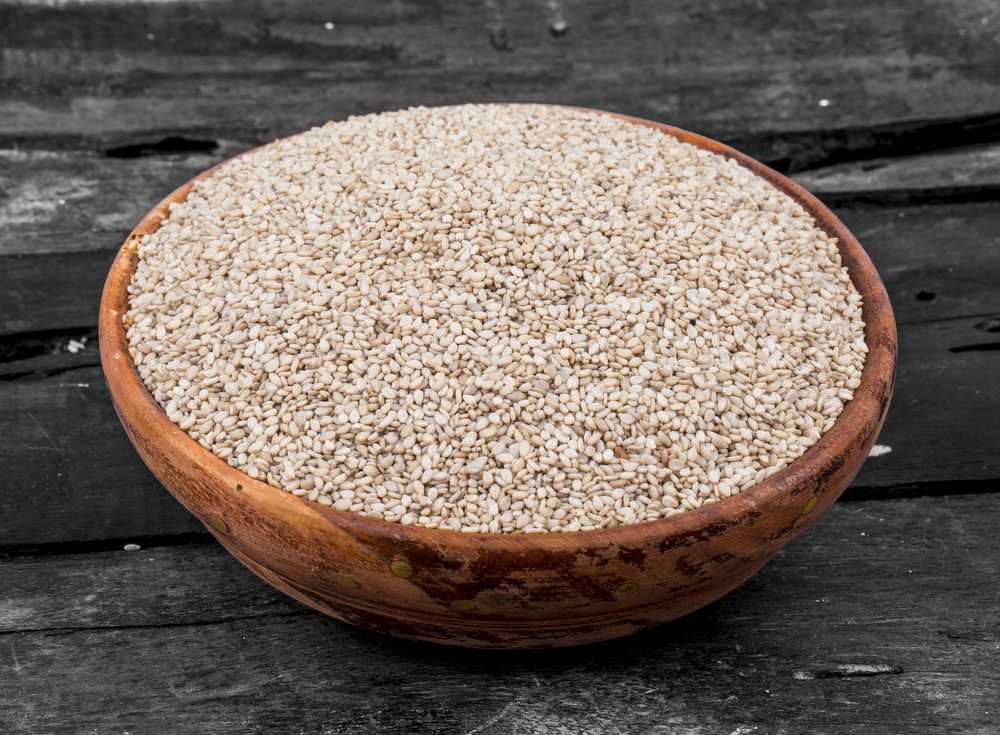As India dons its monkey cap to welcome the winter chill, regions across the nation are finding their own delicious ways of keeping warm with delectable food, including Punjabi, Maharashtrian, Bengali, Hyderabadi and Gujarati cuisine. Traditional recipes are revived and seasonal produce is celebrated, from sarson ka saag and matar nimona to undhiyu, kollu rasam and nolen gurer paayesh.
This is also a time when, grandmothers willing, jaggery-scented til laddoos can be found in most Indian homes. Warm, chewy and deliciously toasty, sesame compliments the sweetness of gur, just the way the food itself compliments the winter.
But did you know that this traditional winter staple is a super healthy way of reaching your weight loss goals?

According to science, here is a list of reasons why you should be eating a lot of til laddoos this winter.
- Sesame seeds contain two powerful compounds, sesamin and sesamolin, that have been proven to boost metabolism, lower LDL cholesterol (the bad kind), control high blood pressure, and help burn belly fat. When 38 people with high cholesterol levels ate five tablespoons of sesame seeds daily for two months, they experienced a 10% reduction in their LDL levels and an 8% reduction in triglycerides.
Moreover, Lignans like sesamin and sesamolin also function as antioxidants, helping fight oxidative stress — a chemical reaction that damages cells and increases the risk of several chronic diseases.
In fact, studies have shown that sesamin’s anti-inflammatory and antioxidant action may protect your cartilage. In this study, people suffering from arthritis in their knees consumed five tablespoons of sesame seed powder every day alongside medicines. They experienced a 63% reduction in knee pain when compared to only a 22% decrease for the group solely using medicines.
2. Sesame seeds are packed with dietary fibre that aid in digestion and help keep your tummy fuller for longer, thereby preventing hunger pangs and binge-eating. In fact, three tablespoons of sesame seeds supply 12% of the Reference Daily Intake (RDI) for fibre.
The same fibre also helps the sugar and fat in your meal enter the bloodstream at a steady rate, so that your blood sugar levels stay in check.
3. Sesame seeds have low sodium content, so they help in preventing fluid retention and regulating fluid flow in the body. They are also high in magnesium, which helps lower blood pressure levels.
4. Sesame seeds are also rich in heart-healthy Omega-3 fatty acids, calcium, fibre, B-vitamins, zinc, iron and Vitamin E. Many of these nutrients are vital to bone health, immunity, blood formation and healthy cell function.
5. If you are trying to build muscles while on a low carb diet, sesame seeds are a great choice. Rich in protein, til seeds help you maintain muscle mass. Moreover, they are high in methionine and cysteine, two amino acids that are not provided by dals (legumes) in large amounts.
Note: Roast sesame seeds to maximize protein availability — the roasting process lowers the content of oxalates and phytates that hamper digestion of protein.
If reading sesame’s long list of health benefits convinced you to prepare some til ke laddoo for your family, here’s a quick recipe you may find handy:
Things you will need:
1. Til (sesame seeds) – ½ kg
2.Gur (jaggery) – ½ kg
3. Desi Ghee – 2 tbsp
4. Powdered Cardamom – 1tsp
On a medium-low flame, roast the til seeds in a heavy pan while stirring frequently. Take care not to burn them, roasting only till they turn light brown. Once they cool, use a mixer to grind them into a coarse powder.
Grate the gur or break it into small pieces using a pestle. On a low flame, heat the ghee in a pan and add the gur. As soon as the gur melts, turn off the flame.
Add the crushed til seeds and the cardamom powder. Blend well to help them release their flavour and bind to the gur. The mixture is ready to be rolled into laddoos which can then be stored in an airtight container for up to 10 days.
Edited by Divya Sethu
No comments:
Post a Comment